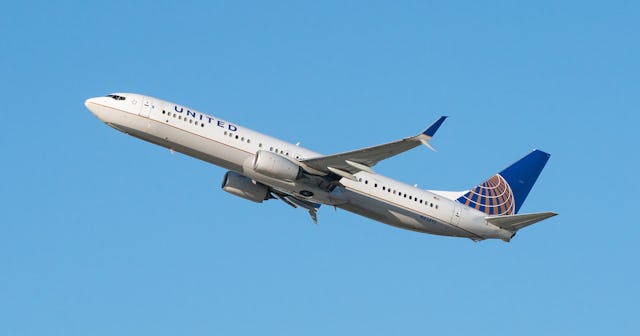United Airlines Begins Flying Pfizer's COVID-19 Vaccine

Pfizer’s COVID-19 vaccine is reportedly being flown by United Airlines chartered flights to distribution hubs
Pfizer’s COVID-19 vaccine is moving quick. Not only did Gen. Gustave Perna, the logistics supervisor for Operation Warp Speed, recently tell reporters at The Washington Post that vaccination will be deployed to a portion of healthcare workers next month — with the first batch of 6.4 million doses including vaccines for prisons, as well as the Indian Health Service and the Veterans Health Administration — but according to the Wall Street Journal, United Airlines began operating charter flights to send doses of Pfizer and BioNTech’s COVID-19 vaccine to prepare for distribution.
“As a result of the historic pace of vaccine development through Operation Warp Speed and careful logistics planning, the FAA today is supporting the first mass air shipment of a vaccine,” the Federal Aviation Administration (FAA) told The Hill. Because Pfizer’s vaccine must be kept at below-freezing temperatures, the FAA said they are working with manufacturers, air carriers, and airport authorities, who are providing guidance on transporting large amounts of dry ice air cargo. And, according to the Wall Street Journal, Pfizer has been laying the groundwork to move quickly if it gets approval from the FDA and other regulators.
“The FAA established the ‘FAA COVID-19 Vaccine Air Transport Team’ in October to ensure safe, expeditious, and efficient transportation of vaccines. Several vaccines need continued cold temperatures during transport, which, in some circumstances, require dry ice, a hazardous material,” the FAA stated.
Pfizer’s mRNA-based shot needs to be stored at almost 100 degrees below zero. In order to keep the temperature consistent, the Wall Street Journal reports the company designed suitcase-size shipping containers that will keep the medicine at the required temperature for up to 10 days. Each container holds between 1,00 to 5,000 doses. Pfizer is planning to buy cargo space on about 20 planes per day from FedEx, UPS, and DHL International, in hopes to deliver doses as close as possible to vaccination hubs, such as major hospitals or rural medical centers. The pharma company, which is manufacturing the vaccine in Kalamazoo, Andover, Massachusetts, and St. Louis, plans to deliver 100 million vaccine doses in 2020 and 1.3 billion in 2021, according to MarketWatch.
Researchers have explained the need for “freezer farms” for vaccine delivery, something pharma providers use regularly, according to Pharmaceutical Commerce. The storage, called cold chain management, keeps drugs at the appropriate temperature during storage and shipment. UPS is building farms in Venlo, Netherlands, and Louisville, KY (both of which are near UPS air hubs). Each facility will house banks of supercooled freezers. The plan includes 600 freezers which can each hold 48,00 vials of vaccine. UPS will also build freezers in South America, Germany, and the UK. The shipping company DHL recently opened a 20,00 square foot facility in Indianapolis. Plans include temperature-controlled storage at 15-25,2-8 and -20 temperatures. DHL built the operations in what’s called a Free Trade Zone, which allows for international cross-shipping.
As for the first batch of doses, Perna said states and territories have been given information from Operation Warp Speed to “plan and figure out where they want the vaccine distributed.” States will then give Operation Warp Speed their top five sites capable of both receiving and administering the shot.
According to Fox Business, FedEx’s vaccine delivery plan involves 5,00 facilities, 80,000 vehicles, and 670 aircraft. FedEx has designated three temperature ranges for storage: frozen (-13 to -14 degrees Fahrenheit), cold (35.6 to 46.4 degrees) and controlled room temperature (59 to 77 degrees), says Commercial Appeal. The news organization reports air transport isn’t always perfect: the International Air Transport Association reported in 2015 that 25 percent of vaccines reach their destination degraded due to improper shipping.